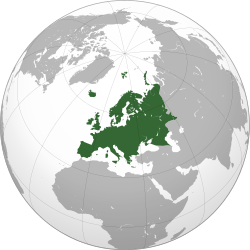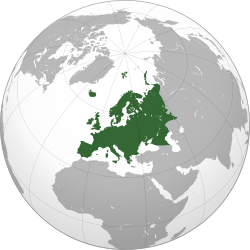
Europe Unveils Bold Plan To Challenge China's EV Dominance

The European Commission has introduced the“Small Cars Initiative,” a new strategy designed to make small electric vehicles more accessible to European consumers. This move, coming at a time when China's dominance in the global electric vehicle market continues to rise, aims to ensure Europe's competitive position in the EV sector. The initiative is part of Europe's broader efforts to transition to greener technologies and reduce dependence on foreign imports, particularly from China, which has made significant strides in both manufacturing and exporting electric vehicles.
The EU's push to dominate the small EV market is a strategic response to China's increasing presence in Europe. Chinese automakers have aggressively expanded into European markets, offering competitively priced electric cars that have captured a growing share of the region's automotive sector. By introducing affordable small EVs, Europe hopes to counterbalance this influence and stimulate local production.
The European Commission's plan focuses on creating a more sustainable and competitive automotive industry within the EU by providing incentives for consumers and manufacturers alike. This includes financial subsidies for buyers of small electric cars, particularly in countries with the lowest EV penetration. These incentives are aimed at reducing the price gap between electric vehicles and traditional gasoline-powered cars, making the transition to electric transportation more attractive.
Key to this initiative is also the development of infrastructure. The Commission has committed to enhancing charging networks across Europe, ensuring that small electric vehicles can be charged conveniently and efficiently. This infrastructure expansion is expected to support the uptake of electric vehicles, particularly in areas where traditional fuel stations are more readily available than EV charging points.
See also Scania bets €2 billion on China with first fully owned factoryThe automotive industry, one of Europe's most vital sectors, is undergoing a transformation. European automakers, including Volkswagen, Stellantis, and Renault, are already investing heavily in electric vehicle technology. However, they face stiff competition from Chinese manufacturers like BYD and NIO, who have not only the production capacity but also the supply chains and cost structures that allow them to sell their vehicles at highly competitive prices.
China's market penetration is not limited to vehicle exports. Chinese companies are also investing in the European EV ecosystem by building factories and establishing research and development centres. This level of investment has raised concerns within the EU about the long-term competitiveness of European automakers. The introduction of the“Small Cars Initiative” is a direct attempt to prevent China from dominating the European EV market in the same way it has become the leader in global EV production.
The initiative also underscores Europe's broader environmental goals. The European Green Deal, an ambitious set of policies aimed at making Europe the first carbon-neutral continent by 2050, sets stringent emission targets for all sectors, including transportation. The EU's emphasis on small electric vehicles is seen as a crucial step toward achieving these targets, as cars are among the largest contributors to greenhouse gas emissions in the region.
By incentivising the production and sale of small electric cars, the EU also aims to promote the growth of local supply chains. The production of EV batteries, an essential component of electric vehicles, has been a particular focus. The EU has been working to establish its own battery production facilities to reduce reliance on Asian suppliers, particularly China, which controls a significant portion of the global battery market. Strengthening local supply chains for EV manufacturing is seen as vital for ensuring Europe's long-term strategic autonomy.
See also Tesla Issues Massive Recall of Cybertrucks Over Light FaultThe rollout of this initiative is expected to have several ripple effects across Europe. Consumers will likely see an increase in the availability of affordable, small electric cars in the coming years, with many major manufacturers already lining up new models. Additionally, the push for local manufacturing could lead to job creation in the electric vehicle and battery production sectors, potentially offsetting some of the job losses from the decline of the internal combustion engine vehicle market.
Notice an issue? Arabian Post strives to deliver the most accurate and reliable information to its readers. If you believe you have identified an error or inconsistency in this article, please don't hesitate to contact our editorial team at editor[at]thearabianpost[dot]com. We are committed to promptly addressing any concerns and ensuring the highest level of journalistic integrity.
Legal Disclaimer:
MENAFN provides the
information “as is” without warranty of any kind. We do not accept
any responsibility or liability for the accuracy, content, images,
videos, licenses, completeness, legality, or reliability of the information
contained in this article. If you have any complaints or copyright
issues related to this article, kindly contact the provider above.


















Comments
No comment